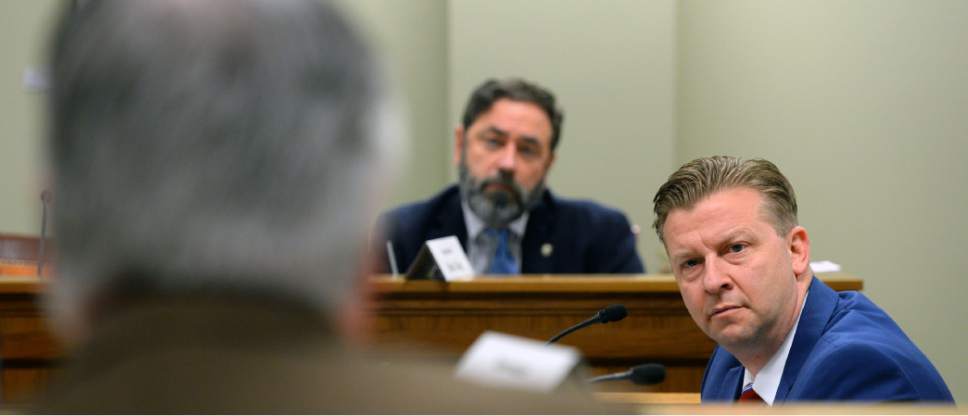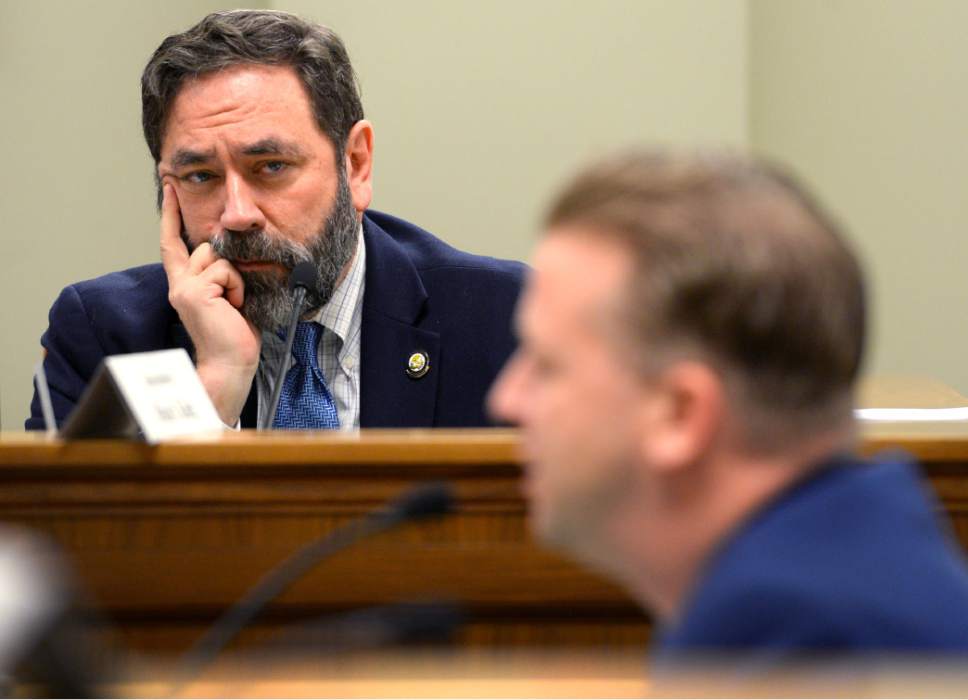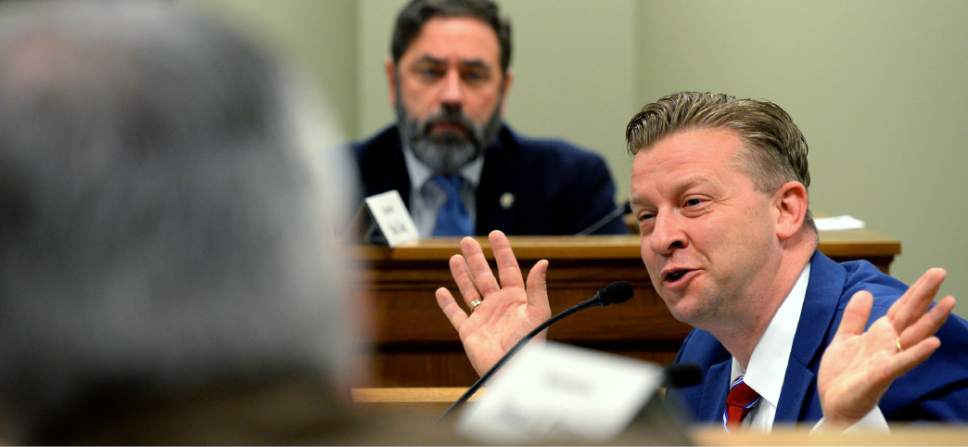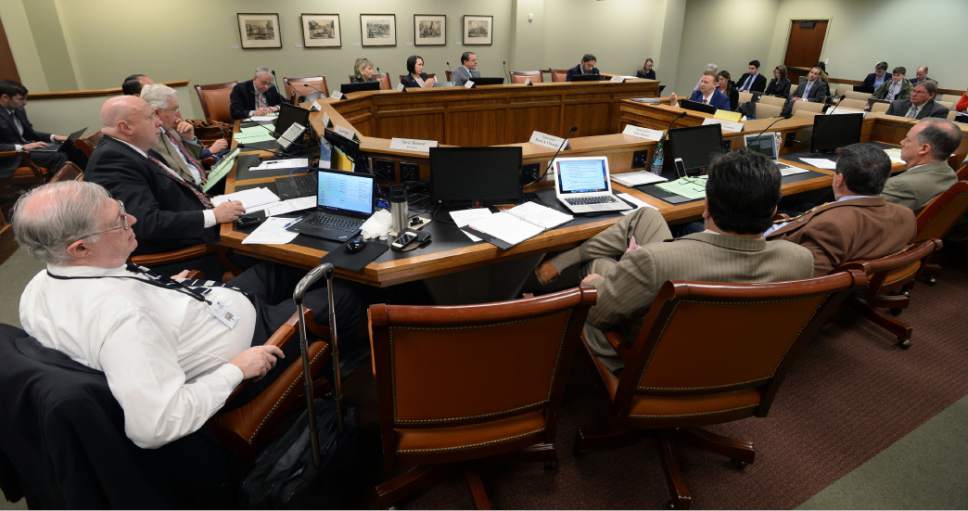This is an archived article that was published on sltrib.com in 2017, and information in the article may be outdated. It is provided only for personal research purposes and may not be reprinted.
Last year, the Utah Legislature declared pornography to be a public health crisis. On Friday, lawmakers gave the next-to-last approval for a sequel bill that would allow suing a pornography distributer for mental or physical damage to minors.
But SB185 would also offer immunity to distributors if they make a good-faith effort to verify a viewer's age and prominently display a content warning about the dangers of pornographic material.
The House Judiciary Committee voted 8-3 to endorse HB185, and sent it to the full House for consideration. The Senate previously approved it 26-0.
However, the committee made an amendment over the objections of Sen. Todd Weiler, R-Woods Cross, the bill's sponsor, that he warned may likely result in House members "being lobbied to death" to kill the bill.
It removed language that would have allowed whoever wins lawsuits under the bill to collect attorney fees from the other side. Weiler said that would prevent frivolous lawsuits, which distributors worried could plague them otherwise. With that gone, he said that side likely will now lobby furiously against the bill.
But Rep. Mike McKell, R-Spanish Fork, pushed the amendment saying it was the only hope for families to take on the multi-billion-dollar pornography industry without fear of paying its legal fees, and to have any hope of prevailing.
Weiler, R-Woods Cross, who passed the "health crisis" resolution last year attracting international attention, also is pushing the new bill that he calls a sequel.
"I still get mocked and scorned every day on social media," he said Friday, adding that many "question my motives and my perversions." But he said it is a crisis, so it demands action — and the bill allows suing for damages for minors who are "physically or psychologically" harmed by exposure to graphic content.
He said an example would be parents suing for reimbursement for counseling or treatment for youth who become hooked on pornography or dealing with behavior problems resulting from it. He noted it technically is already illegal for minors to see or be shown pornography.
He said his favorite part of the bill creates a "safe harbor" for distributors who use age verification and warnings that pornography may be harmful to minors — to easily allow them to avoid lawsuits.
"Kids will probably always be able to see pornography. Should it be easy? No," Weiler said, adding the "safe harbor" may help in that direction. "I believe pornography is harmful and addictive" by showing violence against women, and making improper relations seem normal.
Committee members who are lawyers warned that those who sue face tough requirements to prove damages, and that the distributor sued directly caused them.
Weiler conceded, "This would be a difficult lawsuit to win." But he said it would make it possible. He said attacks on the tobacco industry started similarly, and over decades helped the public to realize its risk and led to steps to limit it.
He said the average age that kids in Utah and nationally are exposed to hardcore pornography is 11 — meaning many children younger than that are also exposed.









